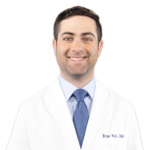Maxillofacial surgery is a unique specialty that merges medical and dental science. This branch of surgery encompasses procedures that treat trauma and diseases affecting the head and neck, with the exception of the brain. The maxilla is the major bone of the middle face which forms the upper jaw. Maxillofacial surgery was born out of a need to manage complex facial injuries, particularly broken jaws suffered by military serving in the war. Over the years, this branch of surgery has evolved to include a broad range of pathological issues, including cancers of neck and head, congenital deformities, salivary gland disease, bone grafting, and skeletal abnormalities.
What is maxillofacial surgery?
While ENTs (surgeons of the ear, nose and throat) and maxillofacial surgeons have some overlap in their treatment areas, the latter focus more on bony structures, along with tissues of the mouth and gums, known as oral surgery.
There are many situations where a patient may be referred to a maxillofacial surgeon by their orthodontist or primary dentist. Underlying pathologies, complicated malocclusions, TMJ disorder or jaw deformities may be significantly improved through maxillofacial surgery.
Maxillofacial surgeons are trained in oral surgery as well and follow a traditional education of dental school, followed by residency and in-depth training in the fields of dentistry, dentoalveolar surgery and maxillofacial surgery.
DDS versus DMD
If you are searching for a reputable oral and maxillofacial surgeon, keep in mind that holders of both a DDS (Doctor of Dental Surgery) and a DMD (Doctor of Dental Medicine) degree are highly educated medical professionals. Both degrees are awarded to general dentists from accredited dental schools and the American Dental Association considers the degrees equivalent. Both the DMD and the DDS have the same rigorous curricula requirements; however, it is up to the dental school to decide which degree will be awarded.
After dentists earn their DDS or DMD, they have another 4-6 years of education to specialize in the field of oral and maxillofacial surgery.
Examples of maxillofacial surgery
Most patients are familiar with oral surgery procedures like wisdom tooth extraction and the placement of dental implants, but comparatively few understand the field maxillofacial surgery. Here are a few examples of maxillofacial surgery procedures commonly performed:
- Corrective jaw surgery
- Temporomandibular joint surgery
- Diagnosis and treatment of head and mouth cancer
- Reconstructive surgery for facial trauma
- Pre-Implant Bone grafting surgery
- Surgery for maxillofacial skeletal defects
Maxillofacial Surgery in Bucks County
Here at Innovative Implant and Oral Surgery, our maxillofacial surgeons help patients correct a number of aesthetic and functional problems, allowing them to lead a more comfortable, confident life.
If you have additional questions about oral and maxillofacial surgery or want to arrange a consultation with our highly-credentialed team, please reach out today. Our cutting-edge office is located in Bucks County, PA.
Additional Resources:
- AAOMS, Maxillofacial Procedures https://www.aaoms.org/education-research/dental-students/oms-procedures
- Colgate, Maxillofacial Surgery And The Oral And Maxillofacial Surgeon https://www.colgate.com/en-us/oral-health/life-stages/adult-oral-care/oral-maxillofacial-surgery-and-the-oral-and-maxillofacial-surgeon-0315


